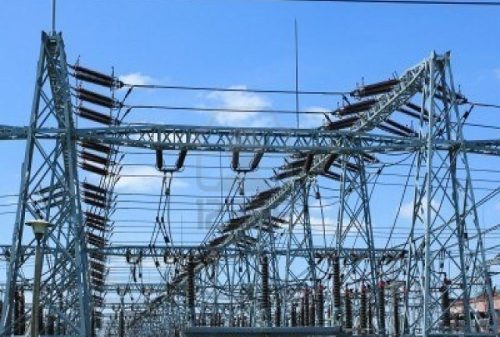Reactions As States Slash Power Tariffs, Gencos, Discos Push Back Amid ₦5tn Debt Crisis
In a bold move to ease the cost-of-living burden on residents, more Nigerian states have begun slashing electricity tariffs, drawing sharp backlash from power generation and distribution companies who warn the cuts could cripple the already fragile power sector.
The latest developments follow Enugu State’s decision to reduce Band A electricity tariff from ₦209 per kilowatt-hour (kWh) to ₦160/kWh, effective August 1, 2025. The tariff cut, authorized by the Enugu Electricity Regulatory Commission (EERC), has set off a ripple effect, with several other states expressing interest in following suit.
States Take Charge Under New Electricity Act
Since the enactment of the Electricity Act 2023, which empowers states to independently regulate their electricity markets, at least seven states—Enugu, Ondo, Ekiti, Imo, Oyo, Edo, and Kogi—have formally taken control of their power regulation. More states, including Lagos, Ogun, Niger, and Plateau, are expected to complete their transition by September 2025.
Enugu was the first to issue a new cost-reflective tariff order through its regulatory body, the EERC. In its Order No. EERC/2025/003, the commission approved a reduction in the Band A tariff rate to ₦160/kWh, while maintaining existing tariffs for Bands B to E. According to the EERC Chairman, Chijioke Okonkwo, the move became necessary after a thorough review of the licence and tariff application by MainPower Electricity Distribution Limited, a subsidiary of the Enugu Electricity Distribution Company (EEDC).
“The reduction reflects cost realities and the need to apply federal subsidies appropriately to benefit consumers,” Okonkwo stated, defending the decision as part of the commission’s mandate to protect consumers in Enugu State.
Power Companies Push Back: ‘A Dangerous Precedent’
Power generation and distribution companies (Gencos and Discos), however, have fiercely opposed the tariff cuts. In a strongly worded statement issued on Monday, the Association of Power Generation Companies (APGC) warned that the decision could jeopardize national electricity supply.
According to APGC CEO, Joy Ogaji, the Enugu tariff order “sets a dangerous precedent” and is based on “flawed subsidy assumptions.” She disclosed that the power sector is already burdened with over ₦5 trillion in unpaid debts, with the Federal Government alone owing more than ₦4 trillion to Gencos.
“If states want to reduce tariffs, they must be ready to pay the resulting shortfalls without expecting the Federal Government to bail them out,” Ogaji asserted. “Any failure to do so will collapse the sector.”
The Discos operating in the affected states echoed similar concerns, urging the state governments to take financial responsibility for any tariff gap that arises from the price reductions. They emphasized that further erosion of revenue would jeopardize infrastructure upgrades and daily operations.
More States Join the Tariff Reform Train
Despite the backlash, other states are pressing ahead. Ondo and Plateau states have officially announced plans to cut electricity tariffs in their jurisdictions. Lagos State said it would soon unveil its own consumer-focused tariff adjustment strategy.
In contrast, Ekiti State declared it would stick with the national Multi-Year Tariff Order (MYTO) framework issued by the Nigerian Electricity Regulatory Commission (NERC) for the time being, citing the need for further analysis.
A representative from Ondo State’s energy department noted, “The goal is not to undermine the power sector but to ensure electricity is affordable for households and small businesses struggling under inflation.”
The rising momentum behind subnational electricity regulation underscores a growing desire by state governments to localize decision-making on critical infrastructure and consumer welfare. With energy costs spiraling and complaints mounting from consumers, states are under pressure to deliver relief quickly.
A Sector at a Crossroads
The clash between state regulators and national electricity firms illustrates a deeper crisis in Nigeria’s power industry: weak cost recovery, heavy debt exposure, and the lack of a unified tariff methodology across federated markets.
Industry analysts warn that while tariff reductions may win public approval in the short term, they could undermine the long-term viability of power supply if not backed by targeted subsidies, efficient billing, and transparent investments.
“Energy reform must balance affordability with sustainability,” one expert said. “You can’t keep cutting prices without a clear plan on how to fund the gap. Otherwise, we risk blackouts, investor flight, and sector-wide collapse.”
What Next?
With more states poised to take regulatory control by the end of Q3 2025, the national power landscape is shifting rapidly. The Federal Government and NERC may need to step in with policy guidance to ensure coherence in pricing frameworks and cost-sharing mechanisms between states and service providers.
Unless consensus is reached, Nigeria’s power sector could find itself in deeper turmoil—caught between state populism and financial instability.
Copyright © EaglesWatchOnline 2023 All rights reserved.
This material, and other digital content on this website, may not be reproduced, published, broadcast, rewritten or redistributed in whole or in part without written permission from EaglesWatchOnline.

